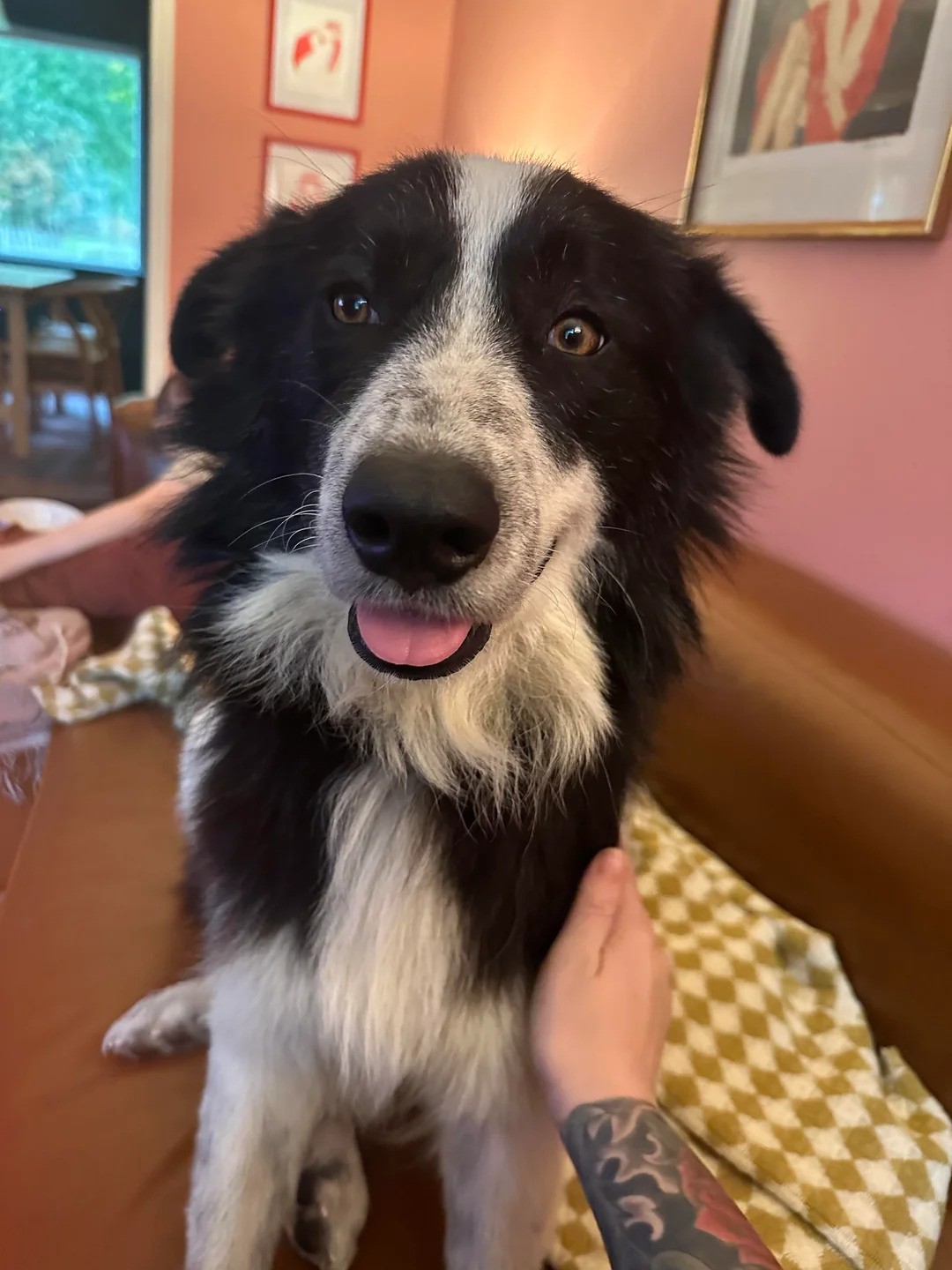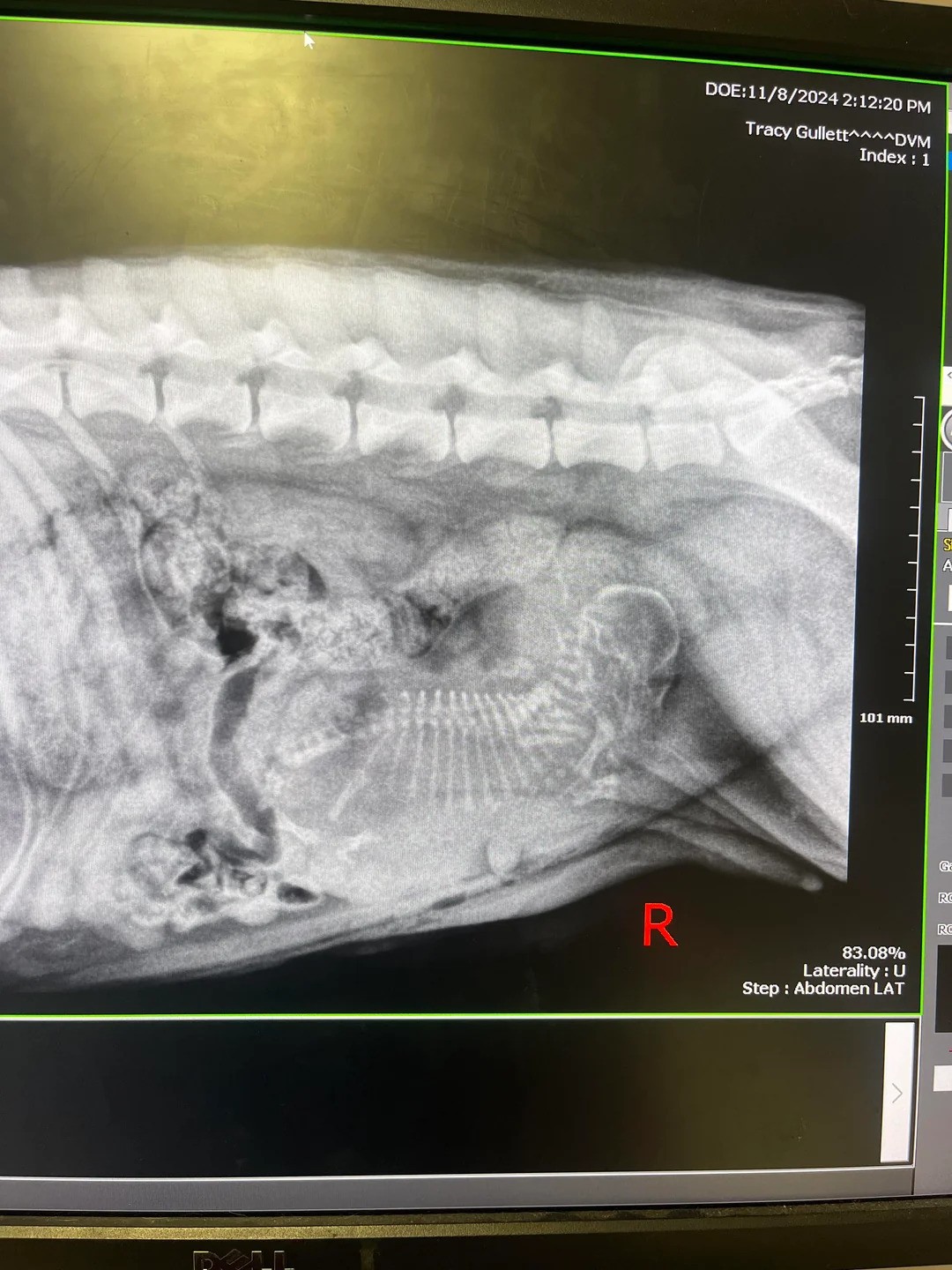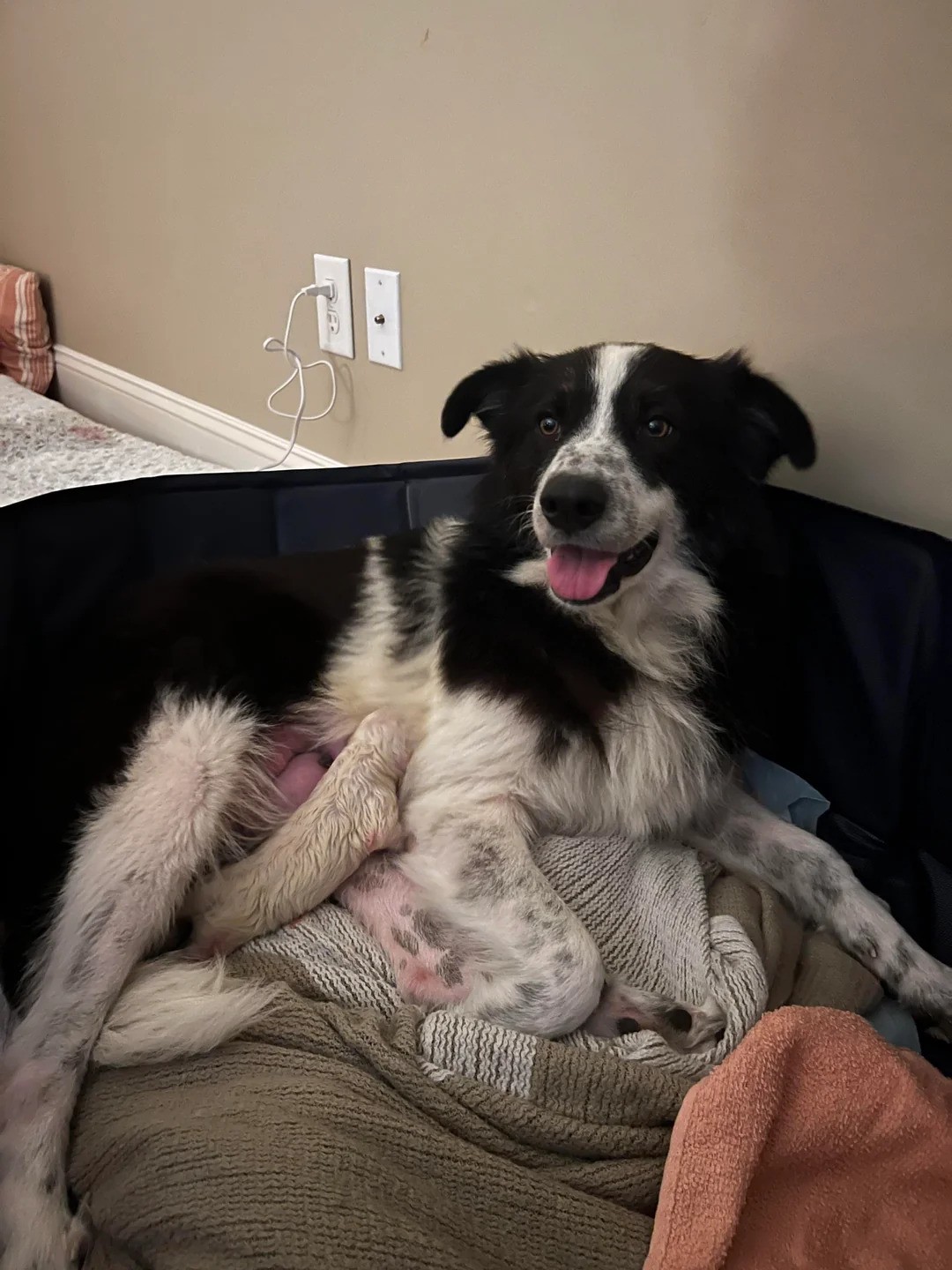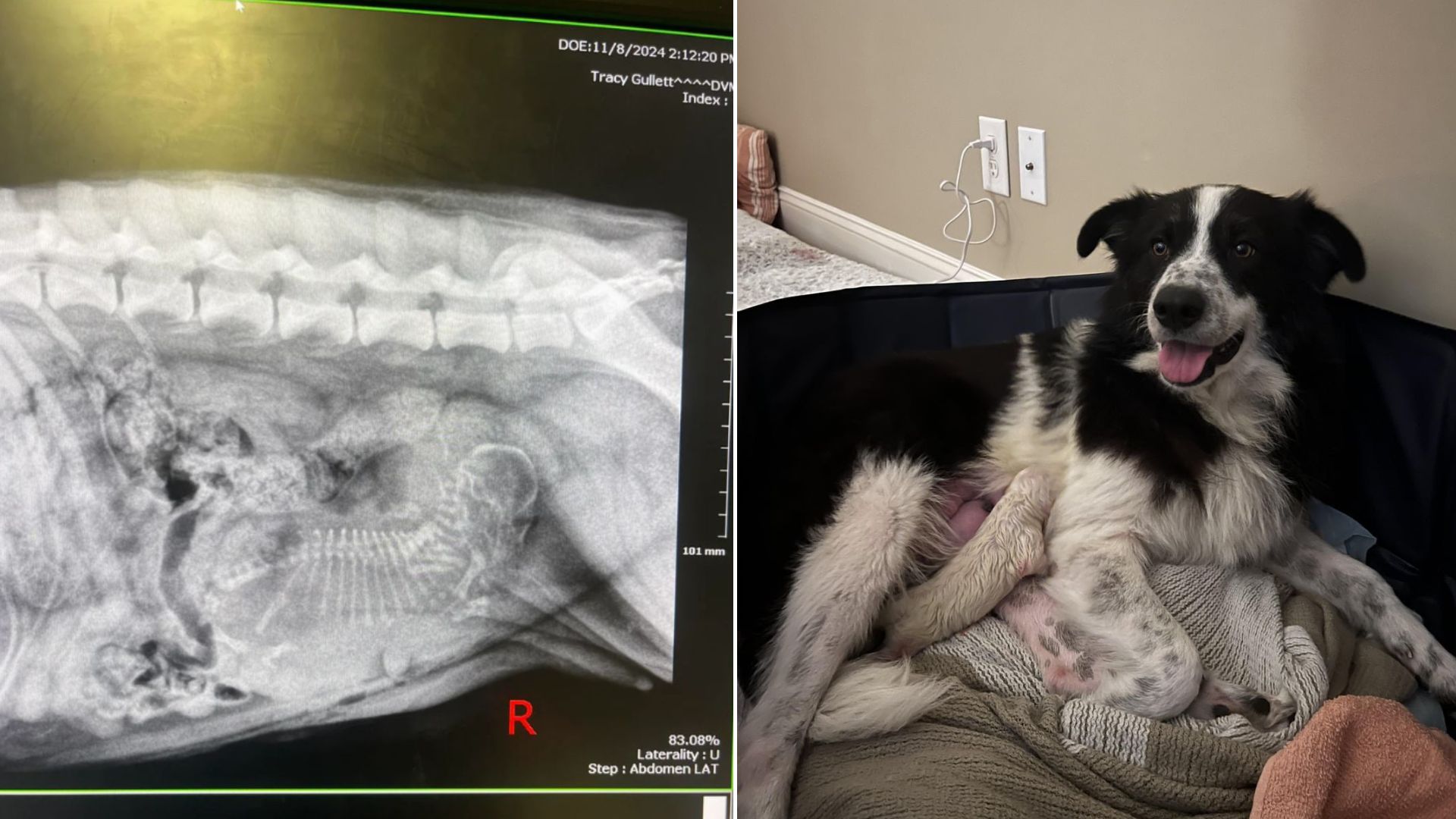There’s truly nothing better than giving a shelter dog a second chance.
Walking into a shelter, seeing all the hopeful faces, and choosing one to take home is a life-changing moment—for both the human and the pup.
That’s exactly what Haley Houghmaster set out to do.
After visiting a local shelter in Memphis, Tennessee, she immediately connected with Salem, a sweet Australian Shepherd and border collie mix.
Haley was planning to adopt just one dog. She filled out the paperwork, brought Salem home, and started helping her settle into her new life.
But it turned out someone else had come along for the ride.
A New Life And A Growing Family

As Salem began adjusting to her new home, Haley scheduled the usual vet appointments, one of them being a routine spay procedure.
But during surgery, the vet team made a surprising discovery. Just after making the first incision, they realized Salem wasn’t just a rescue—she was an expectant mom.
“Found out at spay appt [appointment] that my new rescue dog is pregnant with one puppy,” she later shared in a Reddit post.

Faced with a big decision, Haley listened to the vet’s advice. Given the risks of terminating the pregnancy and the fact that Salem was only carrying one pup, she chose to continue with it.
“We are very excited and praying for a healthy puppy and an uneventful delivery,” Houghmaster said in an interview.
One week later, Salem gave birth to a single, healthy puppy.

Since that day, Haley and her family have poured their love into both dogs, giving them everything from a safe home to plenty of treats and affection.
Both Salem and her little one are thriving under their care.
What To Know About Single-Puppy Pregnancies
What started as a one-dog adoption turned into an unexpected blessing—and the beginning of a beautiful bond between three new family members.
Also known as singleton pregnancies, these rare cases occur when a dog carries just one pup.
While unusual, singleton pregnancies aren’t impossible. They may be caused by low ovulation during a heat cycle, fertilization issues, or even specific genetic conditions.
But there are unique risks involved.
These can include dystocia—when the puppy grows too large to be delivered naturally—or delayed labor, due to a lack of hormonal triggers.
In some cases, singleton pups may even face social development challenges without siblings around to learn from.
Owners of singleton pups should plan for extra support and early socialization to help their puppy thrive.
Most importantly, always consult with a trusted veterinarian to create the safest and healthiest path forward for both mother and pup.
